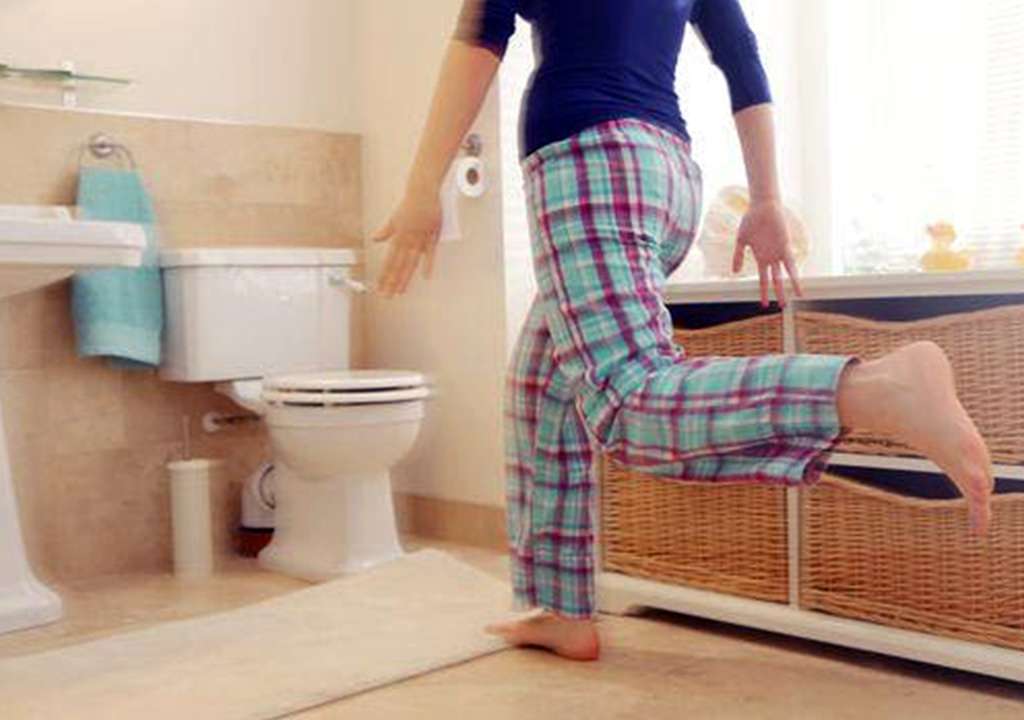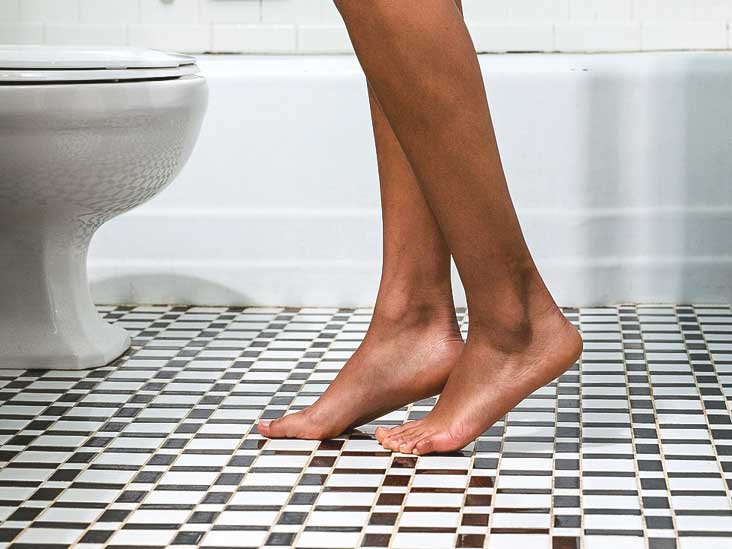Causes Of Frequent Urination At Night
Nocturia is the medical term used to describe the need to get up frequently at night to urinate. It is a condition that people commonly attribute to older age, but there are other reasons why it can occur. Some causes are benign and readily resolved with lifestyle changes others may be persistent or signs of a serious illness.
Chronic nocturia can significantly affect a person’s well-being and quality of life, causing sleep deprivation, daytime fatigue, impaired concentration, depression, and a loss of productivity.
Medical Treatments For An Overactive Bladder
Depending on how successful they were and the strength of your condition, your doctor may recommend that you continue with the above treatments and return for another check-up after a specific period of time.
However, if they decide, usually in consultation with the patient, that medical treatment may be beneficial or necessary, they may choose to prescribe one or multiple medical treatments, some of which are detailed below.
Prevention And Treatment Options
Prevention of nighttime urination is typically recommended by healthcare providers. Common lifestyle modifications include the following:
- Restriction of fluids before bed, while ensuring that adequate fluids are taken in throughout the day
- Avoiding beverages with caffeine
- Maintaining a healthy weight excess weight can place pressure on the bladder
- Taking afternoon naps
- Taking diuretics at a time when they will not disrupt sleep
Your healthcare provider may also request that you keep a voiding diary. A voiding diary will help you and your provider pinpoint what is causing symptoms of OAB. Common items to record on a voiding diary include:
- How much fluids are consumed
- What kind of fluids are consumed
- Times of urination
- Whether there was an urge for urination
- Whether incontinence was experienced
If lifestyle modifications are not enough, medications may be prescribed:
- Anticholinergics treat bladder spasms, which reduces the urge to urinate.
- Diuretics, though it may sound counterproductive, if timed appropriately can be very effective. A diuretic taken in the morning can assist with regular urine production, which helps to rid the body of excess fluids earlier in the day.
- Tamsulosin , finasteride , and dutasteride all treat benign prostatic hyperplasia, which reduces pressure on the bladder.
- Desmopressin helps the kidneys produce less urine this medication is helpful when the cause of OAB is diabetes insipidus.
You May Like: Is Urge Incontinence The Same As Overactive Bladder
Seek Help From A Qualified Physical Therapist
Vaginal childbirth can damage the ligaments, nerves, and pelvic floor muscles that support the vagina, bladder and urethra. While pelvic floor exercises may help some women after birth, many need more intensive physical therapy.
Talk to your doctor, who may refer you to a qualified physical therapist who specializes in pelvic floor therapy if you have any incontinence or pain that doesnt go away after giving birth. Embarking on proper rehabilitation soon after having your baby may help you avoid more serious gynecological problems later on.
Related: Leaking while running? Pro tips to run without worry
Why You May Have Bladder Leaks At Night

Often times, bladder leakage at night is a form of overflow incontinence. If you experience overflow incontinence, the involuntary release of urine from an overly full bladder, you likely experience urine leaks â a lot! Even at night. You naturally have to use the bathroom less while youâre sleeping than when youâre awake. This is because your body produces a hormone called ADH â anti diuretic hormone â that signals to your kidneys to produce less urine. However, some people donât produce the appropriate amount of ADH at night, leading to too much urine production.
Alternatively, even if your body produces enough ADH, your kidneys may not respond to the hormone. This means that your body will still produce too much urine, leading to maximum bladder capacity and leakage at night.
Often times, bedwetting in adults is genetic. If one of your parents wets the bed, you have a 40 percent chance of wetting the bed at some point in your adult life as well.
Don’t Miss: Medicine To Stop Bladder Spasms
Take Charge: Seek Your Doctors Advice
Approximately 80% of those affected by urinary incontinence can be cured or improved, yet only one in 12 people with incontinence issues seek help. Talk to your doctor about your bladder control as it can dramatically improve your lifestyle.
Your doctor can investigate and establish a cause for your overactive bladder. Treatment can then be tailored to this cause and may involve medications, bladder retraining, pelvic floor exercises, absorbent products, surgery, or combinations of these options.
Plus, consider joining the Drugs.com Overactive Bladder Support Group. Here, you can connect with people with similar questions and concerns, share your experiences, and keep up with the latest new drug approvals, ongoing research, and medical news.
Seven Effective Treatments For Overactive Bladder
Overactive bladder occurs when sudden or frequent urges to urinate become hard to control, and can often lead to leakage .
In order to best treat overactive bladder, a urologist must pinpoint the underlying cause. Treatment will depend on symptom severity and the degree to which they impact someone’s quality of life. In general, there are three approaches to treatment: medication, behavioral interventions, and surgery.
Don’t Miss: The Most Frequent Initial Symptom Of Bladder Cancer Is
Medicine For Stress Incontinence
If stress incontinence does not significantly improve with lifestyle changes or exercises, surgery will usually be recommended as the next step.
However, if you’re unsuitable for surgery or want to avoid an operation, you may benefit from an antidepressant medicine called duloxetine. This can help increase the muscle tone of the urethra, to help keep it closed.
You’ll need to take duloxetine tablets twice a day and will be assessed after 2 to 4 weeks to see if the medicine is beneficial or causing any side effects.
Possible side effects of duloxetine can include:
- nausea
- constipation
Do not suddenly stop taking duloxetine, as this can also cause unpleasant side effects. A GP will reduce your dose gradually.
Duloxetine is not suitable for everyone, however, so a GP will discuss any other medical conditions you have to determine if you can take it.
What Are Bladder Storage Disorders
In bladder storage disorders the ability of the bladder to store urine is reduced causing nocturia . The night-time volumes of urine passed are often small as well as frequent in bladder storage disorders.
Bladder storage can be affected by conditions that reduce bladder capacity, cause an overactive bladder or that cause bladder irritation.
Incomplete bladder emptying due to an underactive bladder or bladder outlet obstruction is another potential cause of more frequent night-time urination.
Don’t Miss: Clamp Foley For Bladder Training
Nocturia Treatment: How Can I Stop Excessive Urination At Night
Bladder leaks at night, or nocturia, can leave you with some wet clothes and sheets to grapple with in the morning.
If you have a sensitive bladder that spasms involuntarily, you may not wake up in time to use the facilities. Nighttime incontinence of this sort is best treated through lifestyle adjustments.
Use these tips and remedies to treat nocturia and frequent urination at night.
Oab And Your Sex Life
OAB can interfere with that other bed activity, too. Thereâs nothing that can shut down an intimate moment faster than realizing youâve lost control of your bladder — something that happens for many people with OAB. âSexual activity itself is irritating to the bladder, and you can lose urine during intercourse,â Sanz says. âAbout 15% of my patients report having incontinence during sex.â
âWhen youâre being intimate, youâre used to secretions and moistness, but the thought that itâs actually urine leakage is really upsetting and uncomfortable,â Denson says. âUsually itâs the female patient who has the leakage, and itâs actually more bothersome for her than for her partner.â
Don’t Miss: Radiotherapy Success Rate For Bladder Cancer
Kegel Exercises And Muscle Training
You can also do special pelvic floor exercises, or Kegel exercises, in addition to regular exercise. Kegel exercises strengthen the muscles to minimize involuntary contractions and improve posture. Its also one of the safest behavioral therapies without side effects and complications.
To do Kegel exercises:
You can also talk to a physical therapist to see if youre squeezing the right muscles.
Yes, Kegel exercises works for men, too »
Precautions And Proper Diagnosis

The main symptoms of OAB can also occur in other health conditions like bladder cancer, urinary tract infection and enlarged prostate. Seeing blood in your urine is not a symptom of OAB.
A sudden and frequent need to urinate is common in both OAB and a UTI. How can you tell the difference between these two urinary health issues? Unlike OAB, a UTI also comes with other symptoms such as discomfort while urinating. In addition, OAB symptoms are continuous while UTI symptoms are sudden and may also include a fever.
Overflow incontinence is characterized by the involuntary release of urine from an overfull urinary bladder, often in the absence of any urge to urinate. This condition is not associated with OAB. It typically occurs in people who have a blockage of the bladder outlet, which can occur with benign prostatic hyperplasia, prostate cancer or a narrowing of the urethra. Overflow incontinence can also occur when the muscle responsible for removing urine from the bladder is too weak to empty the bladder in a normal way.
It is very important to see a doctor to ensure a proper diagnosis if you experience any changes in your urine and/or urination habits.
Also Check: What’s Good For Bladder Control
Talk To Your Doctor About Nocturia
As with any medical condition and health concerns, it is recommended that you talk to your doctor about the symptoms you are experiencing and discuss treatment options. The doctor may ask for an overview of your diet and fluid intake, how often you wake up per night to urinate, as well as if you have any underlying health conditions.
It can be difficult to broach the subject with others, but don’t be embarrassed. It’s more prevalent than you think. Some common questions to get the conversation started with your doctor include:
How do you diagnose nocturia ?What causes nocturia or frequent urination at night?Why do I wake up to pee at night?How can I better manage my fluid intake?How many times is normal to urinate at night?What can I do to prevent bedwetting?Can you stop nocturia or frequent urination at night?Are there any medications or treatment options to help control my bladder?
The sooner you know what the source of nocturia and your frequent bathroom visits, the faster you can get treatment, learn how to stop bedwetting, and be on your way to a dry, comfortable and restful nightâs sleep. Hello, better quality of life!
What Is Frequent Urination At Night Or Nocturia
Nocturia is the medical term for frequent urination at night. Nocturia is a symptom and not a diagnosis.
Nocturia is defined as the number of urinations that occur during a nights sleep with each urination both preceded and followed by sleep.
Nocturia is a very common symptom with more than 70% of people aged 70 or older affected. Men and women are affected in similar numbers in the older population.
Nocturia also happens in younger people with some studies showing that up to 30% of people aged 20 to 40 years old need to pass urine once or more at night.
You May Like: How Long Is Bladder Surgery
What Is Overactive Bladder
Overactive bladder problems are related to the reserve function of the bladder, causing sudden urge to urinate. Then, the bladder muscles develop contractions with greater frequency and make you want to urinate . That leads to difficulty controlling your cottage.
Urinary system includes:
- Two ureters
- Bladder
- Urethra .
The muscles also participate in the process of urinating, which leads to abnormalities in many different organs. Bladder, kidney or bladder obstruction and muscle problems can cause the bladder to overactive.
Overactive Bladder At Night
Overactive bladder, or OAB, is exactly what it sounds like a bladder that has a sudden need to urinate. This urge may be difficult to near impossible to stop and it can lead to incontinence.
Typically, OAB is characterized by that “need to go” feeling, urinating eight or more times in a 24-hour period, and urge incontinence an involuntary loss of bladder control that occurs following that “need to go” feeling.
As uncomfortable as OAB is, it can be even worse when it is experienced at night as it can lead to a loss of sleep.
Also Check: Best Way To Treat Bladder Infection
Assessment Of Frequent Urination At Night
The assessment of nocturia includes those factors on history and physical examination discussed in the general assessment of urinary incontinence.
History taking in patients with nocturia includes a specific assessment of:
- Fluid intake
- Total fluid intake
- Intake of fluids in the hours before going to bed
- Intake of fluids that can act as bladder irritants and increase nocturnal urine output such as alcohol and caffeine
- Blood sugar levels
- Diabetic control in diabetic patients
What Are Other Health Risks Related To Nocturia
The consequences of frequent urination at night go beyond just poor sleep. For older adults, nocturia creates a higher risk of falls, especially if they are rushing to get to the bathroom. Studies indicate that fall and fracture risks increase by 50% or more for people with two or more nighttime bathroom trips.
Nocturia has been associated with reduced scores on quality of life measurements as well as negative health conditions including depression. Beyond specific negative impacts, nocturia has also been connected to higher overall mortality although further research is necessary to fully understand this correlation.
Read Also: Antibiotic For Bladder Infection In Elderly
Causes Of Nocturnal Polyuria
Causes of nocturnal polyuria include:
- Conditions that cause fluid retention such as
- Heart failure
Try To Avoid Caffeine Carbonated Drinks Sugar Alcohol And Spicy Or Acidic Foods

- Caffeine is a diuretic which makes you need to use the bathroom more often.
- Carbonated drinks and sugar are thought to stimulate the bladder.
- Alcohol switches off the ability of your body to concentrate urine. This means you tend to urinate more dilute, watery urine, which dehydrates you. Since you are dehydrated, you may drink more.
- Acidic or spicy food may aggravate your overactive bladder and worsen your symptoms. Certain acidic fruit and juices like orange, grapefruit, lemon and lime can aggravate your bladder, too.
Also Check: How To Prevent Bladder Infections In The Elderly
Alternative Treatments For Nocturia
Many people turn to complementary and alternative medicine before seeking medical help. You may also be interested in alternative medications or treatments for nocturia, but there are few studies to support their use. These treatments may work for nocturia, but only if OAB is the cause.
For example, research has found that:
- herbal medications have a positive impact on symptoms of OAB and quality of life
- acupuncture provides short-term relief for OAB symptoms
- homeopathic remedies may have benefits, but need more studies
- alternative treatments have fewer side effects than medications
- saw palmetto berry extract has no benefit for nocturia
But more research is needed to confirm if CAM works for OAB.
Always talk to your doctor before trying a supplement or alternative treatment. Certain CAM treatments can cause unintended side effects, especially if youre already taking medication.
Anticholinergic Drugs For Overactive Bowel
This particular class of medication is used to control the muscle spasms that lead to overactive bladder. Anticholinergic drugs focus on blocking the nerve signals that typically trigger inopportune bladder contractions, reduce the frequency, and the severity of your urge to urinate.
There are several anticholinergic drugs to choose from and they all require a doctors prescription. Most people have very favourable reactions to anticholinergics, though there are a few possible side effects which may include dry mouth, constipation, increased heartbeat and/or drowsiness.
Read Also: Why Do I Keep Getting Bladder Infections After Intercourse
Specific Antidepressants May Suppress Symptoms
Specific antidepressants such as Tofranil, Tyramine and Norfranil may help to suppress overactive bladder symptoms. Which one your doctor chooses to prescribe will depend on your particular symptoms.
For example, the SSRI class of antidepressants works better for stress incontinence than for urge incontinence, although its not clear how it helps. Alternatively, tricyclic antidepressants are known to have anticholinergic side effects, which relax the bladder muscle and cause the muscles of the bladder neck to contract.